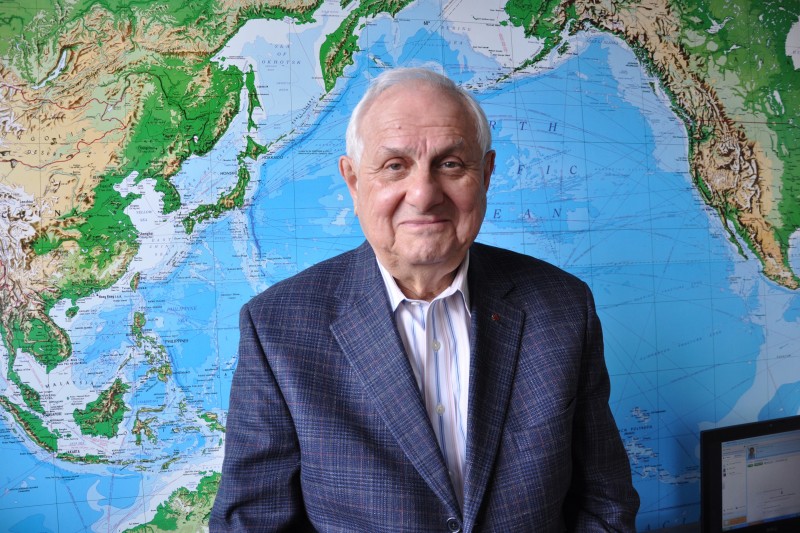UBC: Canada’s Educational Gateway to Asia

In 1971, Senator Jack Austin, then Deputy Minister of Energy, Mines and Resources, travelled with Prime Minister Trudeau on Canada’s first trade mission to China. The country then was one in turmoil—home to a quarter of the world’s population and in the middle of the Cultural Revolution. He was immediately struck by how important China would be for Canada’s future, particularly for his home province of British Columbia.
For Austin (BA ’54, LLB ’55), the trip began a lifetime pursuit to improve Canada-China diplomatic relations. Since then, he’s had arguably more influence than any other British Columbian in strengthening Canada’s relationship with China.
Austin, a former Cabinet Minister of Prime Minister Trudeau and Prime Minister Paul Martin and one of Canada’s longest serving members of Senate, has been working to build strong ties with China in various roles in the public and private sector for the last 45 years. Today, he is helping to lead UBC’s charge to deepen Canada’s understanding and connections with the dynamic region.
China is now the second largest economy in the world and Canada’s second largest trading partner. Austin recognizes higher education as playing a key role in its modernization. The country is increasingly important to Canada’s economic and social wellbeing, and UBC, he says, can and should be “a major player in the quality of the relationship between Canada and China.”
As Co-Chairs of UBC’s China Council, Austin and UBC’s Vice-President of Research and International, Dr. John Hepburn, are leading the university’s efforts to strengthen its longstanding research, teaching and learning links with China.
As the largest research university in B.C., UBC’s vital role in engaging China dates back to its early days. Long before diplomatic relations between Canada and China opened up, the first student of Chinese origin at UBC, Ms. Jinling (Suzanne) Ye, enrolled in the Faculty of Arts in 1915 and became the first Chinese woman to study at a Canadian university. After World War II, the university established one of the top Chinese studies programs in North America.
Throughout China’s incredible transformation, UBC students and faculty have shared their expertise with Chinese counterparts in every field from policy development, to forestry, to medicine.
Today, UBC has more than 70 active cooperation agreements with top Chinese universities that cover research collaboration, capacity building, joint training and student and faculty exchange programs. Chinese students represent the largest international student body on campus, and UBC’s Institute of Asian Research is the leading research centre in Canada for the interdisciplinary study of Asia. Building on the considerable expertise of UBC’s faculty, the China Council is working to keep UBC at the forefront of creating greater academic and cultural exchange between Canada and China.
Most recently, a UBC delegation to China in April 2015 resulted in the signing of an unprecedented number of partnerships with leading Chinese universities. And in 2013, the university entered into a five-year strategic cooperation agreement with China’s Chongqing government. These collaborations will help link UBC more closely with Asia and the Pacific and prepare UBC students to take advantage of the many opportunities presented by the flourishing region.
When asked what role UBC could have in its second century in China and Asia, Austin said, “it’s up to us” (referring to UBC’s motto, Tuum Est). “UBC: Canada’s educational gateway to Asia,” said Austin, “That’s the image that should be seen.”